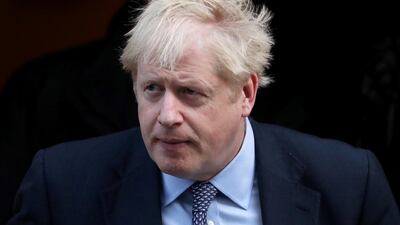The EU is considering a three-month flexible Brexit extension to last until January 31 2020, including an option for Britain to leave the bloc earlier if a deal is ratified.
A draft paper that was circulated among the 27 EU member states said the UK would be able to leave on the first day of the month after a deal was ratified, reports claimed on Sunday evening.
If the extension were granted, this opens the door to it leaving on December 1 or January 1.
French officials have backed the extension, indicating that an agreement on Monday among the 27 states was likely, after British Prime Minister Boris Johnson and French President Emmanuel Macron spoke on Sunday afternoon.
France had irked some of the EU member countries by opposing to the idea of a Brexit extension.
The possibility of an extension will be addressed by EU ambassadors in Brussels on Monday morning and if one is agreed on, it is expected to rule out further negotiations on the terms of the UK’s departure from the bloc.
Britain will also be expected to nominate a member of the next European Commission, to serve until the country’s departure from the EU.
If the extension, which must be agreed to by all 27 EU member states, is not approved the UK will leave the bloc on Thursday.
The draft paper suggests a no-deal Brexit on October 31 is off the table, as demanded by opposition party leaders as a condition for a general election.
Last week, Mr Johnson reluctantly requested a three-month delay after the House of Commons refused his proposal to fast track his Brexit deal through Parliament.
The EU has publicly agreed to another extension but has not finalised a date for a new Brexit deadline.
More than three years since voting to leave the EU, the British Parliament remains divided over how, when and whether to leave the bloc.
Parliament will vote on Monday to determine whether to hold general elections on December 12 to break the political deadlock after MPs block Mr Johnson’s plans to leave the EU before October 31.
For an election to take place, the motion needs to be backed by at least two thirds of Parliament, which would require votes of support from opposition Labour party members.
But Labour has repeatedly told the government to rule out a no-deal Brexit if it wants to fight a general election.
“If he were to come to Parliament and unequivocally say that he’s not going to crash out without a deal, we’d be satisfied with that,” shadow home secretary Dianne Abbott told the BBC, referring to what Mr Johnson could do to win Labour support for the election.
Earlier on Sunday, the Archbishop of Canterbury, Justin Welby, rebuked Mr Johnson for his inflammatory language that has entrenched national divisions over Brexit.

